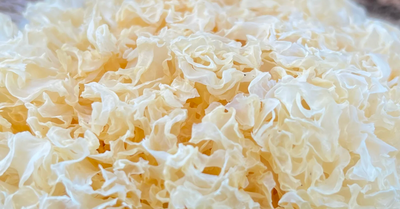Hay Fever: Natural Ways to Treat Seasonal Allergy Symptoms
Hay Fever: Natural Ways to Treat Seasonal Allergy Symptoms
Hay Fever: Natural Ways to Treat Seasonal Allergy Symptoms
Hay Fever, also known as allergic rhinitis, is a common allergic condition marked by symptoms such as sneezing, a runny or congested nose, and itchy or watery eyes. Triggered by allergens like pollen, dust mites, or pet dander, the severity of hay fever symptoms can be influenced by various factors, including lack of sleep, stress, and exposure to allergens.
While there is no cure, several approaches can be used to manage symptoms. These include over-the-counter or prescription medications, each with their unique potential side effects, as well as natural remedies and supplements such as quercetin, omega-3 fatty acids, and probiotics. Dietary adjustments can also play a key role in managing symptoms. Some foods might exacerbate hay fever symptoms, particularly in those with oral allergy syndrome, while others, rich in anti-inflammatory compounds, may help alleviate them.
While hay fever can be disruptive, a combination of these treatment methods, alongside lifestyle modifications, can aid in effectively managing this condition. As always, it's important to consult with a healthcare provider for personalised advice and treatment options.
According to the National Health Service (NHS), it is estimated that there are more than 10 million people with hay fever in England alone. The prevalence is higher in the younger population, with up to 30% of all adults and as many as 40% of children reported to have hay fever.
The hay fever season in the UK typically starts in the spring and can last through the summer, with different types of pollens peaking at different times. Tree pollen is most common in the early spring, grass pollen from late spring to early summer, and weed pollen in late summer and fall.
Hay Fever symptoms
Common symptoms of hay fever include:
- Sneezing
- Runny or congested nose
- Itchy, red, or watery eyes
- Itchy throat, mouth, nose, and ears
- Cough
- Fatigue or tiredness
- Headaches
- Impaired smell
- Trouble sleeping
- Postnasal drip
- Facial pain due to sinus congestion
- Earaches or infection in severe cases
The severity and frequency of these symptoms can vary greatly from person to person. Some people may experience symptoms seasonally, typically in the spring or fall, due to certain tree or grass pollens. Others may have symptoms all year round due to indoor allergens like dust mites, pet dander, or mould.
Causes
Hay Fever, or allergic rhinitis, is caused by an allergic reaction to specific airborne substances. These allergens can be outdoor or indoor, and the timing and severity of symptoms may depend on which substances a person is allergic to. Here are the common causes:
- Pollen from trees, grass, and weeds: This is the most common cause of hay fever and usually results in seasonal allergic rhinitis. The timing of the pollen season and the types of pollen present can vary by location and climate.
- Mould spores: These can be a cause of seasonal or perennial (year-round) hay fever, depending on when and where the moulds grow.
- Dust mites: These tiny creatures are a common cause of perennial allergic rhinitis. They thrive in warm, humid environments, like bedding, upholstered furniture, and carpets.
- Pet dander: These are tiny flakes of skin shed by animals with fur or feathers. It can cause perennial allergic rhinitis.
Several factors can exacerbate hay fever symptoms, making them more severe or frequent.
These include:
- Lack of Sleep: Adequate rest helps keep your immune system in good shape. Lack of sleep can weaken your immune system, making your body more susceptible to allergens and increasing the severity of your symptoms.
- Stress: Stress doesn't cause allergies, but it can make an already existing condition worse. The more stress you experience, the worse your allergy symptoms might become.
- Air Pollution: Exposure to air pollutants like tobacco smoke or car exhaust can aggravate hay fever symptoms.
- Alcohol Consumption: Some studies suggest that alcohol can increase the risk of allergic rhinitis and may worsen symptoms.
Knowing these factors can help you take steps to minimise your exposure to allergens and manage your symptoms more effectively.
Natural Treatments
Hay fever cannot be completely prevented but there are ways to help reduce symptoms using a natural approach.
Everyone is different therefore it is important to try and discover what works best for you to help manage your symptoms. Typically it requires a multi-pronged approach using diet. lifestyle and supplements treatments.
Food to avoid during hay fever season
- Alcohol
- Caffeine
- Sugar
- Conventional Dairy
- Peanuts
- Sunflower Seeds
- Wheat
- Soy
- Certain Fruits and Vegetables: Depending on your specific pollen allergies, you might react to apples, pears, cherries, peaches, plums, apricots, nectarines, strawberries, celery, carrots, parsley, peppers, and parsnips, among others.
Alcohol and hay fever
Consuming alcohol, particularly wine and beer, may aggravate hay fever symptoms due to its effect on the body's histamine production. Alcohol triggers the release of histamine, a compound that the body produces in response to allergens, which is responsible for the inflammation and common allergy symptoms like sneezing, itching, and nasal congestion. Moreover, alcohol can heighten the body's sensitivity to airborne allergens such as pollen, leading to more severe or frequent hay fever symptoms.
Processed foods and hay fever
Processed foods, often high in additives, sugars, and unhealthy fats, can potentially worsen hay fever symptoms by promoting inflammation, impairing immune function, and triggering histamine release, all of which contribute to allergic reactions.
Foods to enjoy during hay fever season
Incorporating certain foods into your diet can help to alleviate the symptoms of hay fever, thanks to their natural antihistamine and anti-inflammatory properties. Here are some that you might want to consider:
- Raw local honey
- Fatty fish
- Turmeric
- Bone Broth
- Garlic
- Apple Cider Vinegar
- Pineapple
- Probiotic rich foods like kombucha, kimchi & sauerkraut
- Green Tea
Local Honey and Hay fever
Local honey is often suggested as a natural remedy for hay fever based on the concept of immunotherapy. The idea is that by consuming honey from your local area, you are exposing your body to small amounts of the local pollen that causes your hay fever symptoms, thereby gradually reducing your immune system's sensitivity to it.
Fatty Fish and Hay fever
Fatty fish and turmeric may help manage hay fever symptoms due to their anti-inflammatory and immune-regulating properties.
Probiotic-rich foods and hay fever
Probiotic-rich foods may help manage hay fever symptoms by supporting immune function and reducing inflammation, as the majority of immune cells reside in the gut and can influence the body's response to allergens. These foods, which include yoghurt, kefir, and fermented vegetables, may also regulate allergic responses by promoting the production of certain immune cells, although more research is needed to fully understand this relationship.
Best supplements for hay fever symptoms:
There are several supplements that some people find helpful in managing hay fever symptoms due to their natural anti-inflammatory or antihistamine properties. Here are a few:
- Vitamin C: Known for its immune-boosting properties, vitamin C can also act as a natural antihistamine
- Quercetin: This plant flavonoid can help reduce the release of histamines.
- Bromelain: An enzyme found in pineapples, bromelain can help reduce nasal swelling and thin mucus, making it easier to breathe.
- Probiotics: As mentioned earlier, probiotics may help to balance the immune response and reduce inflammation.
- Stinging Nettle: This plant has been used traditionally for various ailments, including allergies.
- Butterbur: Some studies suggest that butterbur extract can be effective for hay fever.
- Cod liver oil: Cod liver oil is a type of fish oil that is rich in omega-3 fatty acids, particularly EPA and DHA, as well as vitamins A and D. The omega-3 fatty acids have anti-inflammatory properties and can help reduce the body's inflammatory response to allergens, potentially helping to alleviate hay fever symptoms.
- Bee Propolis: It is a resinous substance produced by bees, has been used in traditional medicine for various purposes, including the management of hay fever symptoms due to its anti-inflammatory properties.
Lifestyle changes you can make
There are several lifestyle changes you can make to help manage hay fever symptoms during the allergy season:
- Monitor Pollen Counts: Stay informed about local pollen counts, which are often available through weather apps or websites. Try to limit your outdoor activities during peak pollen times, such as early mornings and dry, windy days.
- Keep Windows Closed: Keep your windows closed, especially on high pollen days, to prevent pollen from entering your home. Use air conditioning or a HEPA filter to help clean the indoor air.
- Shower and Change Clothes: After spending time outdoors, take a shower and change into fresh clothes to remove any pollen that may have stuck to your body or clothes.
- Wear Sunglasses and Hats: When spending time outdoors, wearing sunglasses can help protect your eyes from pollen, and a hat can prevent pollen from settling in your hair.
- Keep Pets Clean: Regularly bathe and brush your pets to remove any pollen that might be trapped in their fur, which could trigger hay fever symptoms.
- Vacuum and Dust Frequently: Clean your home regularly, using a vacuum cleaner with a HEPA filter to remove allergens like dust mites and pet dander. Dust surfaces with a damp cloth to prevent allergens from becoming airborne.
- Manage Stress: High stress levels can worsen hay fever symptoms. Engage in stress-reducing activities such as exercise, meditation, or deep breathing techniques.
Conclusion
- Hay Fever, or allergic rhinitis, is a common condition characterised by symptoms such as sneezing, runny nose, and itchy or watery eyes, triggered by allergens like pollen, dust mites, and pet dander.
- Various factors can exacerbate hay fever symptoms, including lack of sleep, stress, exposure to allergens, and certain medical conditions.
- Managing hay fever often involves a multi-faceted approach, including the use of medications, natural remedies, dietary adjustments, and lifestyle modifications.
- Supplements like vitamin C, quercetin, bromelain, and probiotics may offer relief, while foods such as local honey, fatty fish, turmeric, and probiotic-rich foods can potentially help alleviate symptoms. However, individual responses may vary, and it's important to consult with a healthcare professional for personalised advice.
- Lifestyle changes such as monitoring pollen counts, keeping windows closed, practising good hygiene, managing stress, and making adjustments to indoor environments can also help minimise hay fever symptoms and improve overall quality of life during allergy seasons.











